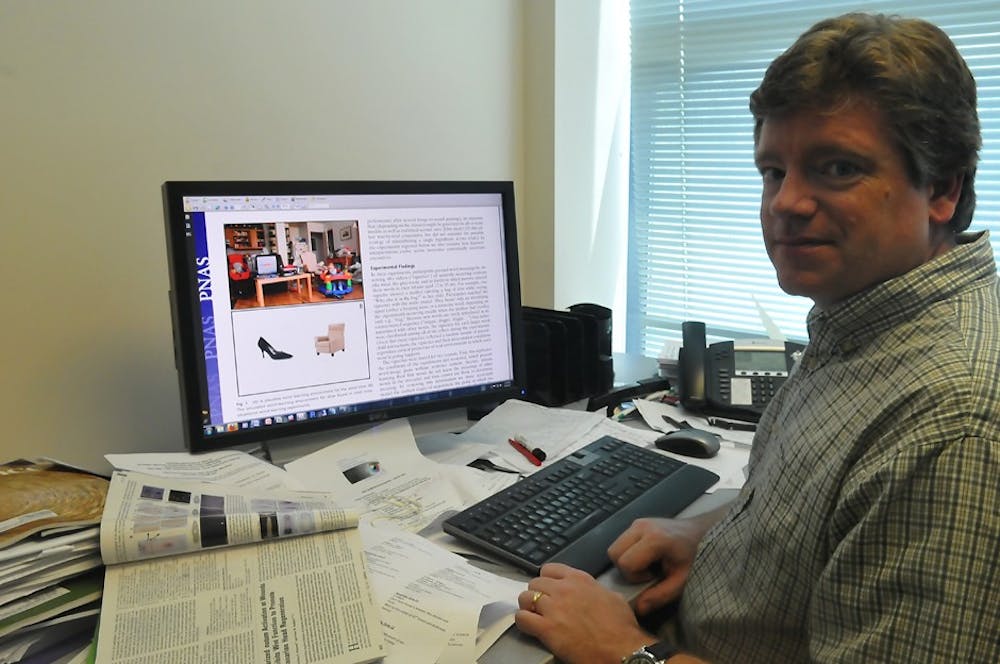
It only takes a moment for a child to learn his or her first words, according to recent Penn research.
Published last month in the journal Proceedings of the National Academy of Sciences, the study suggests that children learn language in moments of insight, contributing to a body of work that could overturn the longstanding theory that language acquisition occurs gradually through repeated exposure.
Postdoctoral fellow Tamara Nicol Medina and psychology professors John Trueswell and Lila Gleitman conducted the research, working with Jesse Snedeker, a professor at Harvard University and former Penn postdoctoral researcher.
The project was born from the observation that children seem to learn words in “one shot,” as they sometimes remember a word well after they are presented with it just once, Trueswell said.
Because words can have abstract or concrete meanings depending upon context, “it becomes less plausible to think that one word has the ability to converge on a single meaning,” Trueswell said.
Earlier language research has taken place in an “artificial context” within a single environment, but natural word learning takes place in a variety of contexts, with different locations, people and objects around the child, Trueswell explained.
In the Penn study, researchers used videos of parents and babies that displayed the entire visual context of what the child saw and heard while learning a specific word. Taking examples of a single keyword being used in different situations, adult test subjects watched the videos with no sound — mimicking the perception of babies who only hear nonsense until they learn the meaning of words.
A nonsense word, such as “moop,” played every time the keyword was spoken in the videos, and subjects had to guess its meaning. By watching many of these videos with the same keyword both in one session and over different sessions, subjects were tested on whether they could remember content of previous videos.
Trueswell said subjects did not remember the context of what they heard but rather what they thought the keyword meant, taking cues from the videos to support or reject their hypotheses. This strategy reduces memory load and helps learning occur through in a variety of environments instead of one specific setting.
Betsy Rymes, a professor in the Graduate School of Education who studies linguistic anthropology of education, said the study seems to recognize that children live a “very complex and communicative life” across all situations they encounter.
“Kids learn routines before sentences and phrases,” giving context a greater significance when it comes to learning words, she said.
Rymes added that she was glad to see a systematic study about the way children learn in different contexts, as many teachers who work in test-heavy schools often say that learning does not necessarily work only through repetition. She hoped that further study goes into exploring what provokes the “eureka moment” children have while learning words, as potential tools for teachers and parents could stem from this area of research.
Trueswell explained that his group’s research is still in the “very, very early phase,” and that while there has been past support for it, there still needs to be further confirmation of the findings.
“The implication would be for education and word learning to focus on the quality of the word learning environment,” Trueswell said, “not just the number of times a child hears the word.”
The Daily Pennsylvanian is an independent, student-run newspaper. Please consider making a donation to support the coverage that shapes the University. Your generosity ensures a future of strong journalism at Penn.
DonatePlease note All comments are eligible for publication in The Daily Pennsylvanian.




